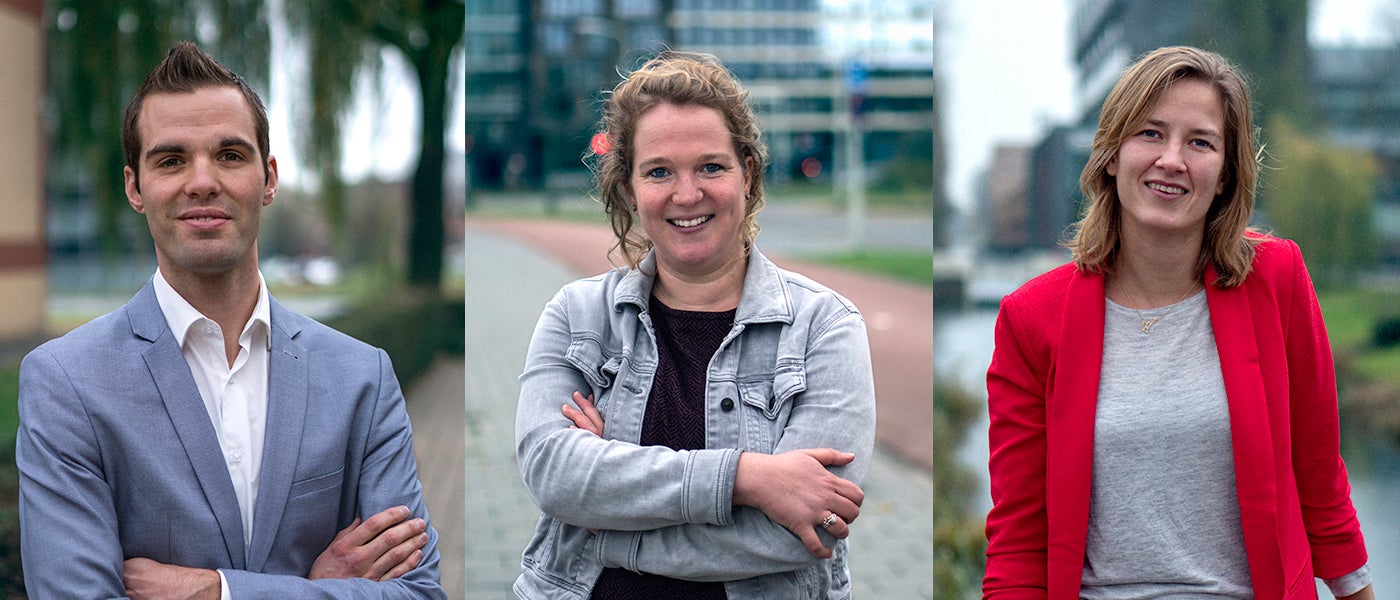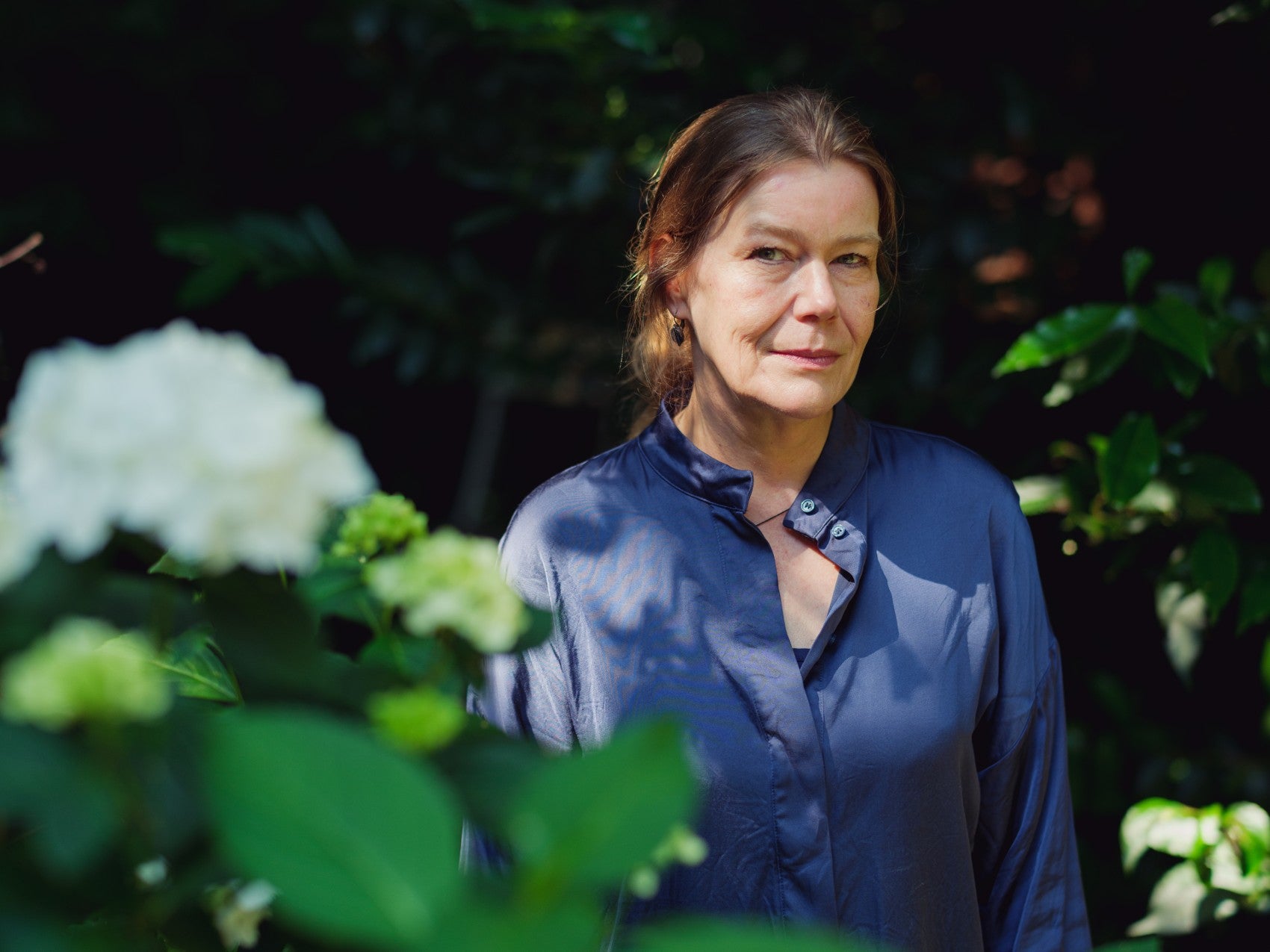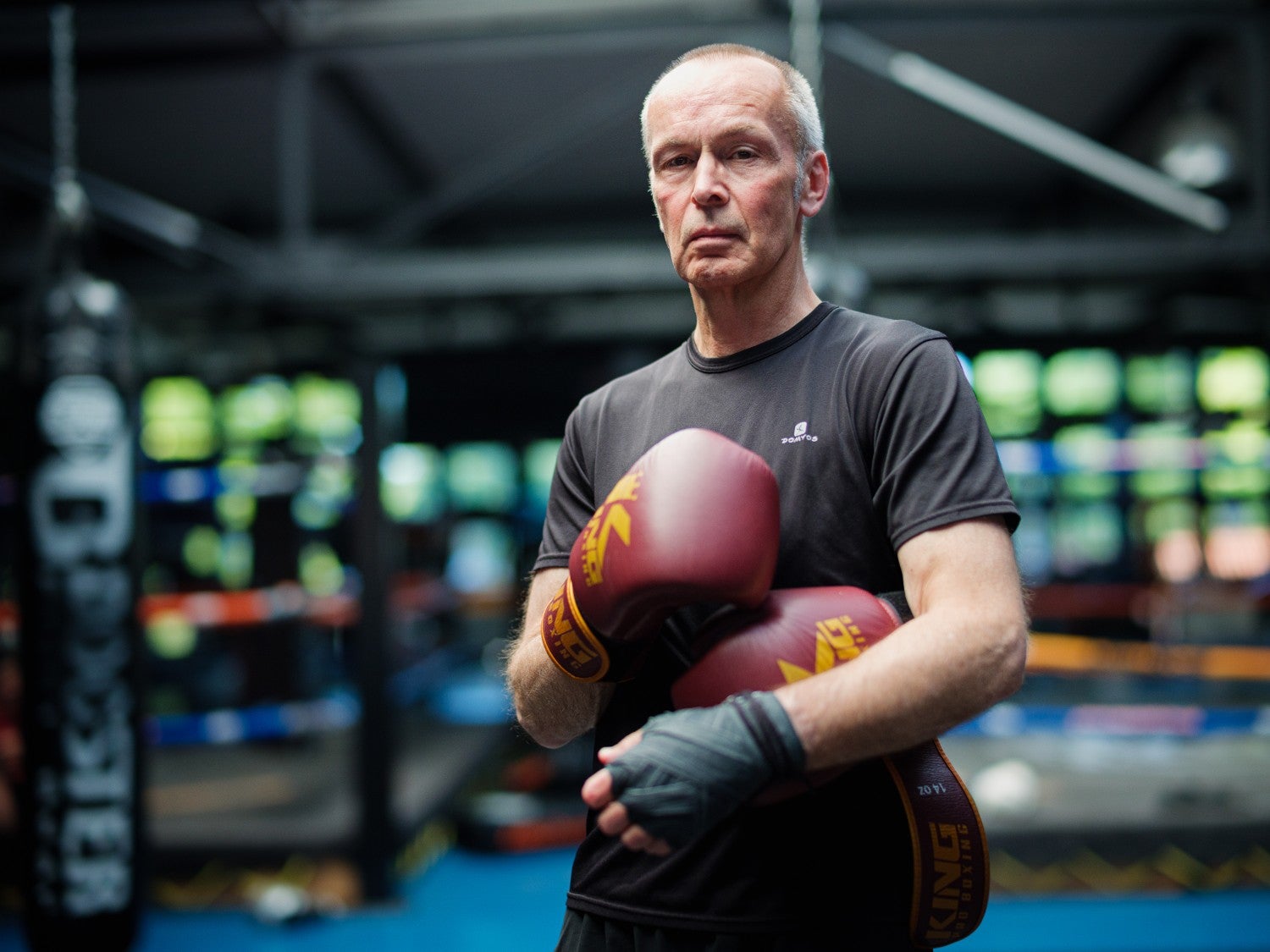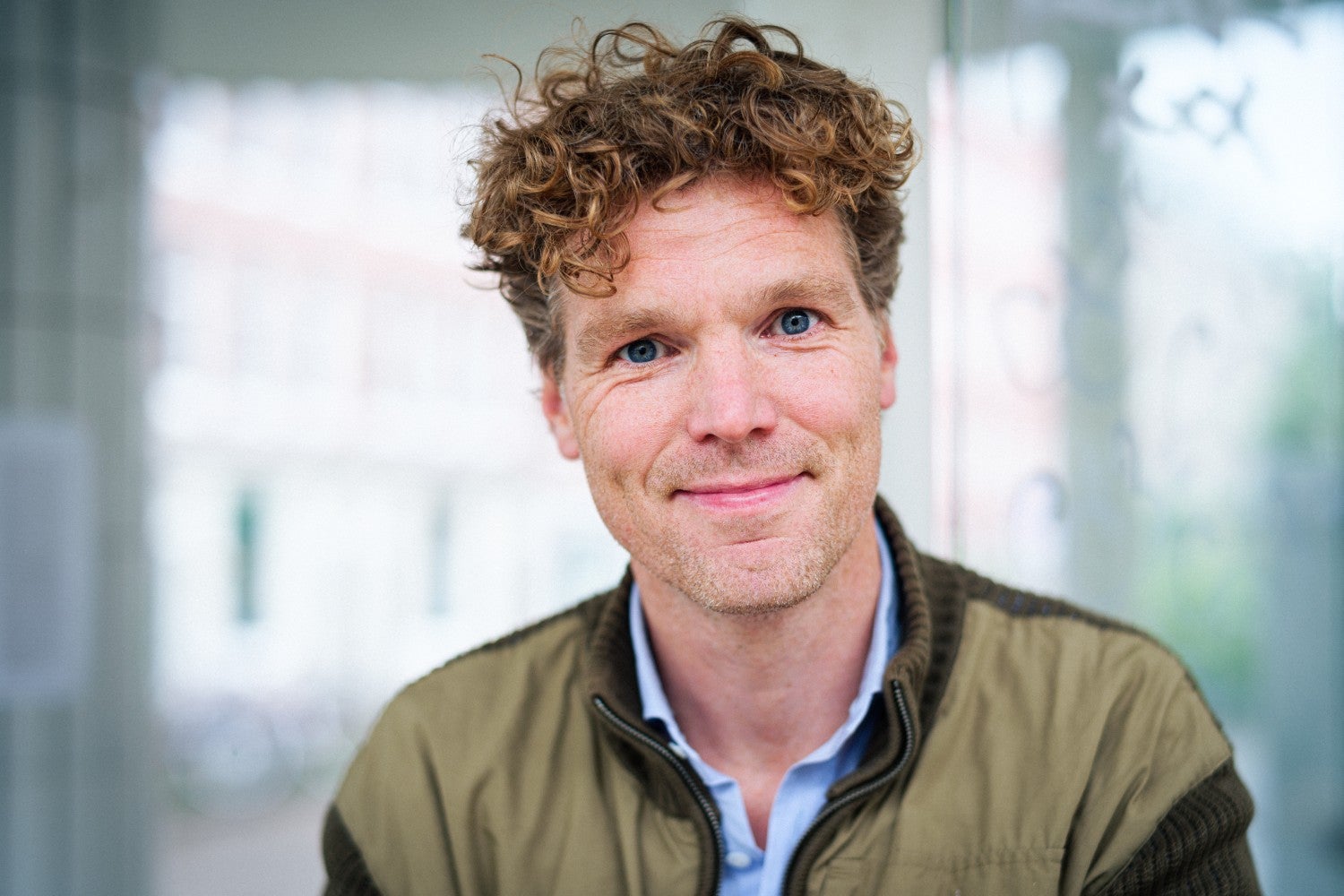There are now more than 107,000 VU alumni. Where did they end up after graduation? In this section we portray three alumni from the same degree programme. This time, we talked to alumni of the Bachelor’s degree programme in Health and Life Sciences.
Erik Valent (1988) is a scientist at SkylineDx
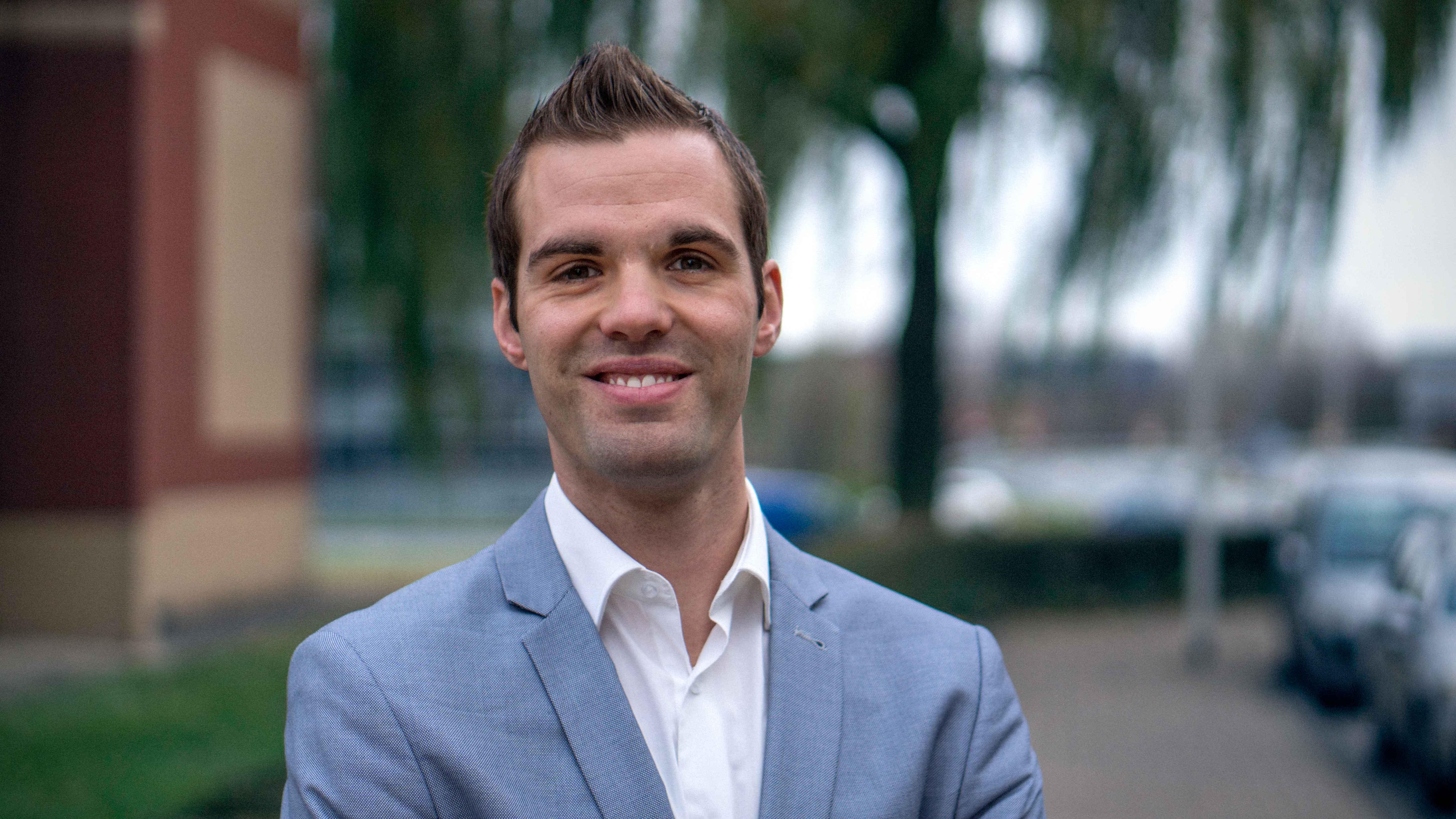
Can you briefly explain what the bachelor’s degree in Health & Life entails?“Health and Life Sciences is a broad degree programme consisting of Biomedical Sciences and Health Sciences. You could see it as a combination of both. There’s the lab aspect, which is closest to Biomedical Sciences and involves working with pipettes in the lab and in-depth research into mechanisms, and the more people-oriented side, which resembles Health Sciences. We study how infectious diseases spread, for instance, and the link between nutrition and obesity. In Health & Life, you really find aspects from both study programmes, which means that a big advantage of this Bachelor’s degree programme is that it helps you make an informed choice about the direction you want to go in in the future. Ultimately, I chose to focus on the biomedical side.”
What did you do after graduation? “After my Bachelor’s degree, I started the two-year specialisation Master in Cardiovascular Research. I graduated cum laude and obtained my PhD from the Physiology department at the VUmc after four years, before ending up at SkylineDx.”
What is SkylineDx and what do you do? “SkylineDx is a scale-up biotech company from Rotterdam with a team of 32 people and a laboratory in San Diego. We discover and validate diagnostic tests and two of our tests are currently on the market. We mainly focus on oncology, tests that help detect cancer. However, we are also developing tests in other fields and we’ve recently created a test for multiple myeloma, also known as Kahler’s disease. That’s a type of plasma cancer which affects about 1500 new patients per year in the Netherlands. In the genes of these patients, we looked for a “bar code” of sorts that can be used to predict how aggressive the cancer will be in standard-risk or increased-risk patient groups. Based on the results of our test, doctors can make a targeted treatment recommendation.
There are about twenty different drugs on the market for this disease and there are major differences from one patient to the next. Up to now, drug choice has been fairly random, but if we know that patient A responded well to drug X and we find a patient with a similar profile in the future, we know we can recommend the same drug to that patient. Naturally, starting with the most suitable treatment right away is ideal. We are currently working on this test together with four other international parties. I’m the project manager, so it’s up to me to coordinate it all.”
Project manager? Does that still tie in with your degree? “Certainly. You need a lot of knowledge of diseases and the human body, which corresponds directly to what I learned during my degree. However, you also learn a wide range of academic skills, such as presenting, processing information to come to a certain conclusion or message and reading literature and drawing the right conclusions. As a project manager, those are just the skills that I need day in, day out.”
What are your plans for the future?“For the time being, I’m very happy here. I love working on various projects and hope that we’ll be able to do even more for patients in the near future. A direct clinical application will save lives.”
Inge Schalkers (1987) is a Patient Participation Policy Adviser at Harteraad
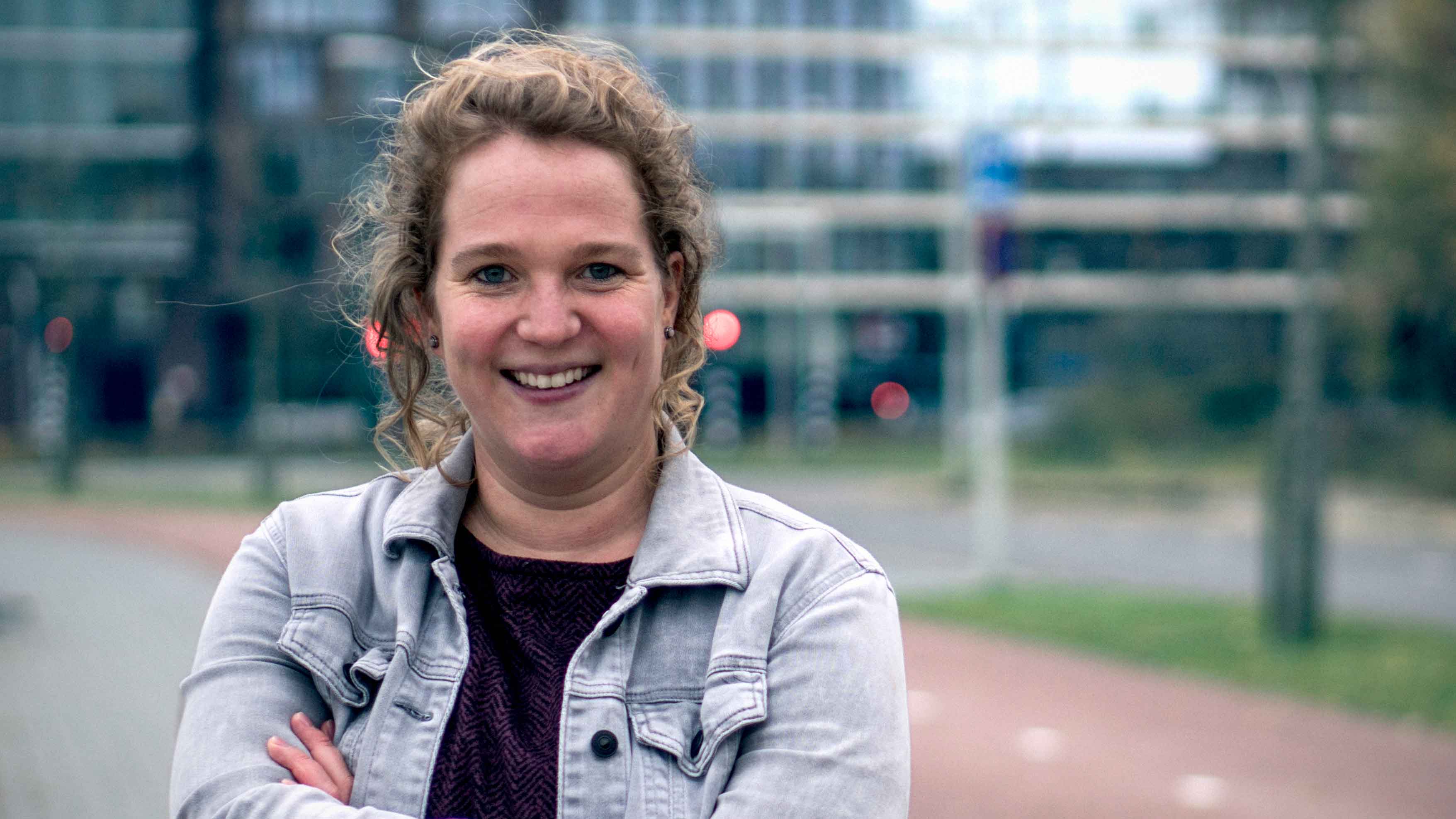
Why did you choose to study Health and Life Sciences? “It was quite a coincidence, actually, because I had enrolled in Health Sciences. That summer, all upcoming students received a message that there was another programme too and that they could switch. I threw the letter away, but my mother took it out of the bin and managed to convince me, in the end. This degree programme made the most of my interest in STEM fields.”
What did you do after graduation? “I stayed at the VU, where I ended up spending 10 years, which is quite a long period of time, when you think about it. After Health and Life Sciences, I started a Master’s degree with a very long name: Management, Policy Analysis and Entrepreneurship in Health and Life Sciences. During that degree programme, I became acquainted with patient participation, which is what I’ve been doing to this day. Two years ago, I started in a PhD programme and recently, after a decade at VU Amsterdam, I made the switch to Harteraad, a patient association for people with a cardiovascular disease.”
What do you do at Harteraad? As a patient participation policy adviser, I work closely with cardiovascular researchers, advising them on how they can coordinate their projects with patients’ daily lives. I also have a group of experienced volunteers who I can link to researchers. The patient experience is a key component of any study: taking patients into consideration increases research quality, can improve your study completion rate and can help obtain truly usable results. Ultimately, the main goal is to improve healthcare and quality of life by putting the patient experience first.”
What would you like to achieve? “I’d like for there to be more appreciation for the knowledge and experience of patients. We still have a long way to go in that respect. It should become self-evident for researchers to ask how patients experience their situation and what they think about what’s happening to them. We have to find a better balance between the scientific and social value of research. Harmonising those two aspects is my dream.”
Is there any advice you’d like to share? “Listen to the patient. I believe that one of the best things you can do is always keep considering whether what you’re doing is relevant for patients and their loved ones. That’s a question that every healthcare professional should regularly ask themselves. And if you don’t know the answer, just ask your patients!”
Anne Hakkert (1989) is a freelance E-learning Developer
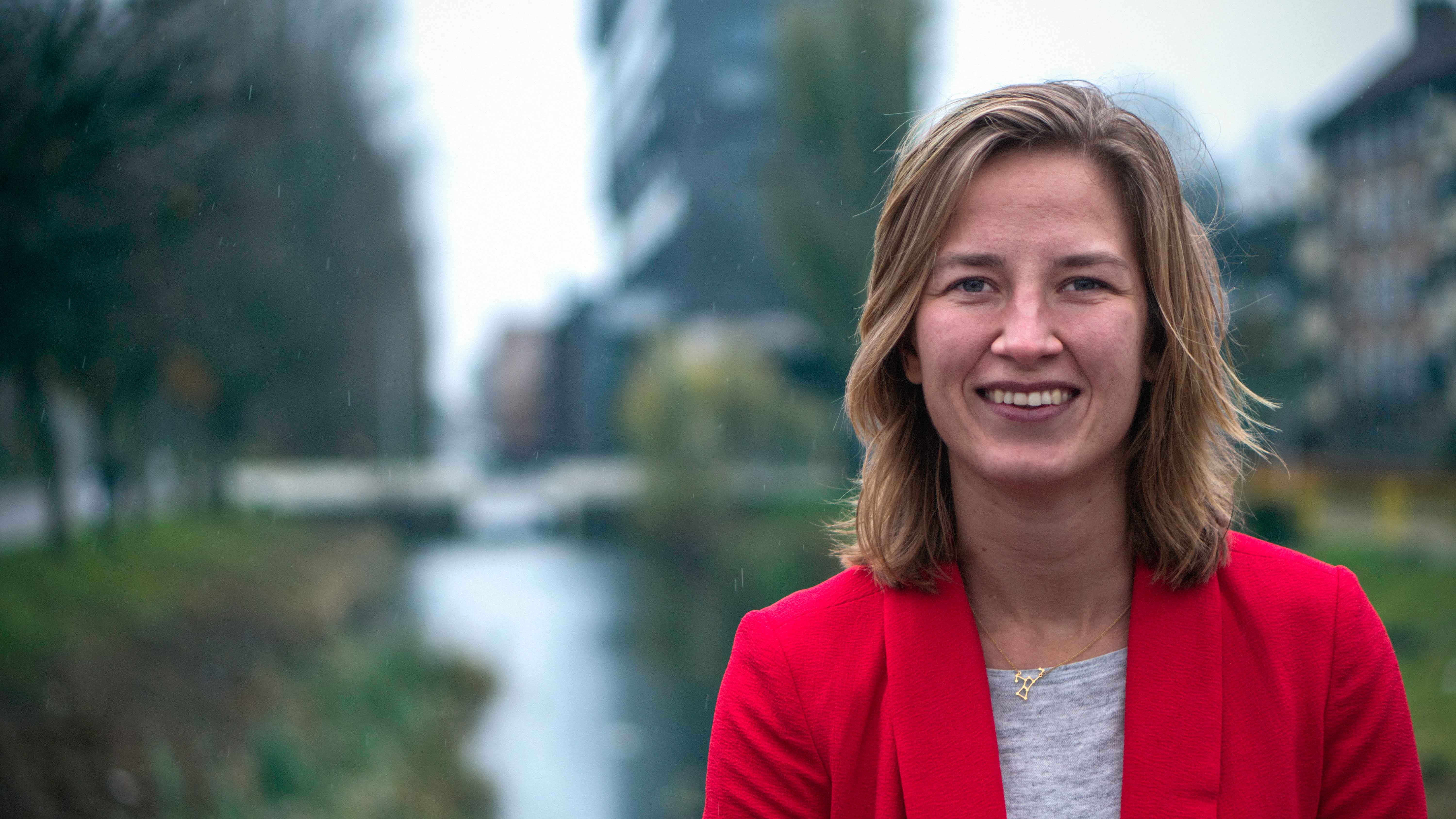
Why did you choose to study Health and Life Sciences? “I’m from Twente and was convinced I wanted to come to Amsterdam. I started exploring the websites of the universities there and came across Health and Life Sciences. The freedom students have during the programme really appealed to me. After the first year, you can pick your own courses, which is a choice I’ve never regretted since.”
What did you do after graduation? “After my Bachelor’s degree, I took a Master’s degree in Oncology. I absolutely love science. I did my first internship at the AMC, working with a group that was researching neuroblastoma, a form of childhood cancer. After my internship, the head of the group told me to give them a call when I’d finished my Master’s degree. That’s exactly what I did, and I started my PhD research at the AMC, before continuing at the Prinses Máxima Centre. Ultimately, I didn’t enjoy it and didn’t finish the project, which is a shame, really, because there was enough data there to publish a PhD thesis. Once something stops making you happy, though, it’s best to just stop. However, I still had a contract at the Prinses Máxima Centre, so I started working at the education department, where I built e-learning modules for nurses and doctors. I enjoyed it very much.”
Are you still doing that now? “After my contract expired, I decided to go on holiday. During that holiday, I realised that I wanted to start building e-learning modules myself. When I returned home, I called the Prinses Máxima Centre, who absolutely loved the idea. I started Innovat-e, my own company, which I’m now looking to expand. All of this only happened a month ago, so it’s very exciting.”
Isn’t that completely different from your degree? “True, it’s a lot more creative. I enjoy thinking of new ideas and implementing them. Essentially, I’m still trying to solve puzzles, but now I don’t have to wear gloves and a white lab coat. I get an enormous rush from coming up with ideas, actually putting them into practice, and then discovering that they work. Science made me feel the same way.”
Does your degree still help you in what you’re doing now? “Yes, I think it does. At university, you learn to think in a certain way: you’re taught to be critical and avoid making assumptions. Knowledge can be found anywhere, but I learned how to process it at the VU.”

